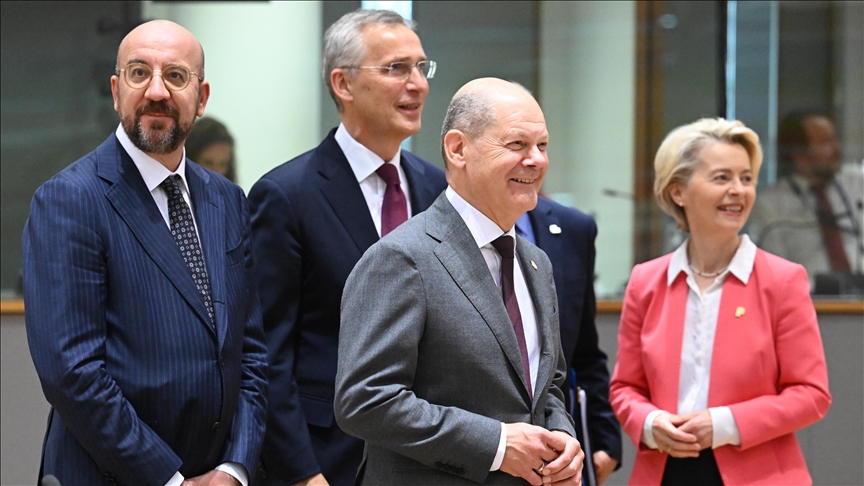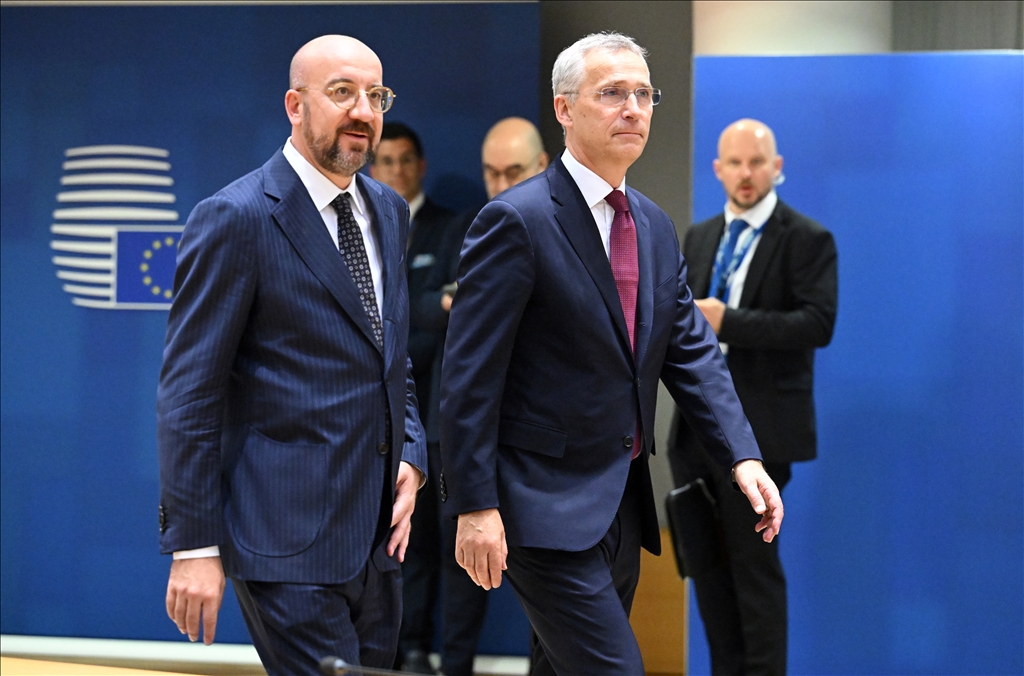 European Council President Charles Michel (L), Secretary General of NATO Jens Stoltenberg (2nd L), European Commission President Ursula Von Der Leyen (R) and German Chancellor Olaf Scholz (C) attend the EU Leaders Summit in Brussels, Belgium- Credit: Dursun Aydemir- Anadolu Agency
European Council President Charles Michel (L), Secretary General of NATO Jens Stoltenberg (2nd L), European Commission President Ursula Von Der Leyen (R) and German Chancellor Olaf Scholz (C) attend the EU Leaders Summit in Brussels, Belgium- Credit: Dursun Aydemir- Anadolu Agency
BRUSSELS
The EU leaders’ summit resumed on Friday with discussions on migration policy after the 27 heads of state and government failed to agree on the matter despite talks continuing until late last night.
Hungary and Poland blocked the summit’s conclusion on migration as they “want to reopen” the decision taken by the EU home affairs ministers two weeks ago, Luxemburg’s Prime Minister Xavier Bettel told reporters on the way to the second day of the meeting in Brussels.
He explained that the move was “against the EU treaties” as the EU leaders cannot overrule a decision already taken.
Hungary and Poland voiced criticism of the migration deal that imposes stricter rules for asylum procedures at the EU’s external border, but creates a system that makes EU countries accept a certain number of asylum-seekers or pay a fee for their hosting to ensure solidary with border countries such as Italy or Greece.
Speaking to Hungary’s public broadcaster Kossuth Radio, Prime Minister Viktor Orban said “there was migration war in the (European) Council’s room.”
He argued that under the deal, Hungary “would be obliged to accept at least 10,000 migrants per year,” which would lead to “migrant ghettos” and deteriorating public security, including “terrorist attacks, bombing citizens.”
The talks will continue on Friday as European Commission President Ursula von der Leyen presented new plans to EU leaders on strengthening the bloc’s external borders and managing migration, including financial support to countries of origin.
EU support for Ukraine
Joined by Ukrainian President Volodymyr Zelenskyy, the EU leaders also discussed further support for Kyiv facing Moscow's war.
According to the Ukraine chapter of the summit conclusions that were already published, the “European Union and Member States stand ready to contribute, together with partners, to future security commitments to Ukraine.”
These security guarantees “will help Ukraine defend itself in the long term, deter acts of aggression and resist destabilization efforts,” it explained, adding that the EU will start “swiftly” working on the modalities.
Orban said he is opposing the European Commission’s latest proposal on topping up the bloc’s long-term budget and granting an additional €50 billion ($54 billion) support for Ukraine in the form of grants and loans.
He accused the bloc of “getting into more debt to support Ukraine beyond their means.”
Anadolu Agency website contains only a portion of the news stories offered to subscribers in the AA News Broadcasting System (HAS), and in summarized form. Please contact us for subscription options.








